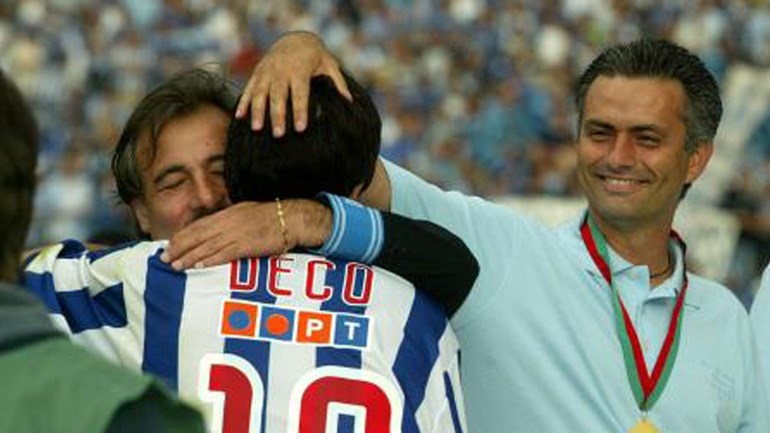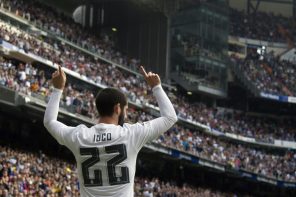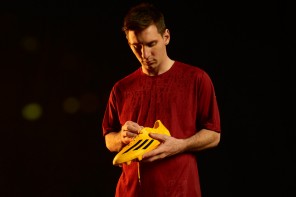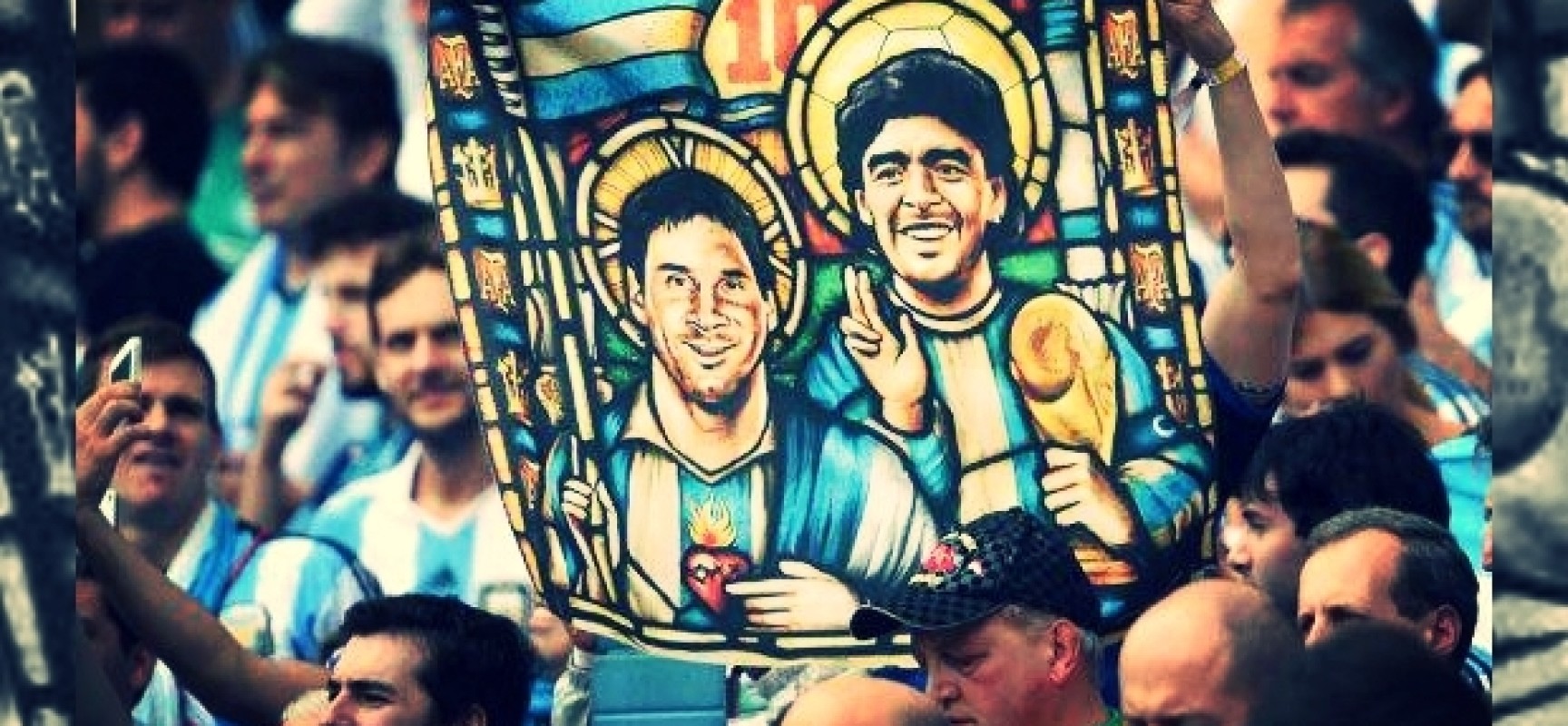In his debut piece for fantasista 10, Jack Connor queries whether Jose Mourinho has an unfair reputation when in comes to Number 10s
Jose Mario dos Santos Mourinho Felix, the aforementioned “Special One”, is possessed with stoic self-confidence. Mourinho portrays an image of control; an image of a coach somewhat privy to a superior galaxy of football intelligence. The Portuguese coach had little playing experience, but had served an apprentice under the finest philosophers football could assemble. An interpreter under Sir Bobby Robson at Barcelona; Jose, however, blossomed under the tutelage of Louis Van Gaal at the Camp Nou. Nevertheless, José had a precocious talent while Porto demanded success.
On the training field, Mourinho made immediate and wide-ranging reform. He implemented a more scientific approach, with every drill measured and designed for a particular purpose. In a tactical sense, his first alteration was to deploy a high press from the front. Integral to this system was Anderson Luis de Souza – or – Deco as he is more commonly referred to. At his unveiling, Jose Mourinho met the eyes of every reporter in the press room. Implementing a stern 4-4-2 diamond formation, Deco, a majestic playmaker programmed with instinctive ability frolicked exquisitely at the apex of that diamond.
Both Mourinho and Deco would exhibit their tactical splendour during the 2003 UEFA Cup final against Celtic. In a showpiece marred by indiscipline and trench settling, two players shone brightest. One was the irrepressible Henrik Larsson and the other was Deco. Given licence to attack the Celtic defence, the Brazilian peppered Rab Douglas’ goal throughout the match. Derlei secured the trophy with a winner in the second half of extra-time. He may have scored the goals, but Deco had won the trophy. For Deco the feeling of unfulfillment remains. Whilst he may be revered in Porto and appreciated in Barcelona, the overwhelming football community has been slow to appreciate his talent. Unfortunately, Deco’s fate is no longer a rarity under Jose Mourinho as the Brazil-born Portuguese maestro’s existence parallels the journey of an underappreciated Dutch midfielder. Enter Wesley Sneijder.
The Champions League final of 2010 is widely remembered as José Mourinho’s. Yet as Mourinho breathed in the significance of his Milanese masterpiece it was one Diego Milito who had tirelessly splashed subtle yet defining moments of genius all over an already impressive canvas. However, if Milito was revered as the Michelangelo painting, Wesley Sneijder embodied every creative brush stroke. The Dutchman’s performance which resulted in the Fans’ Man of the Match award spoke volumes more than any Mourinho sound bite. An Italian Catenaccio 4-2-3-1 system was deployed by the Portuguese coach, who even though not venerated by the Italian establishment, typified their Catenaccio culture. Catenaccio is Italian for “door-bolt” and is therefore not expected to appear in the same sentence as a creative player, however, both Mourinho and Sneijder are the exception.
The Dutch midfielder has an innate ability to create due to the marauding shadow of Johan Cruyff that stalks each and every Ajax prodigy. Sneijder was given the nickname “The Sniper” by the media for his ability to deliver perfect passes and score from impressive distances, the personification of the Number 10 that is inked onto his arm. However, as Mourinho’s Milanese tenure drew nearer its conclusion, Wesley Sneijder’s statue began to dwindle. An ill-fated transfer to Galatasaray followed as Mourinho exited for Los Blancos, a move that Sneijder would not want to repeat. Milan was a patch of purple for the Dutchman. The weight of both Johan Cruyff’s legacy and Jose Mourinho’s inability to coach longevity into the position had flattened yet another creative Number 10.
Jose Mourinho is undoubtedly a pragmatist. He suffers during every game; he visibly ages; he goes through hell. In accordance with this, a psychologist would be quick to connect his management style to his admiration for steely centre-backs and resolute defensive midfielders. Although, his management technique can also be likened to oil being poured onto a flame, the result being an ever-greater fire. An analogy which would also describe the self-anointed playmakers of the beautiful game. Nevertheless, for every Frank Lampard there is a Pedro Leon. Mourinho spoke harshly of Leon, once berating: “even if the team plane crashed without him on it and he was the only man available, he still would not play the following week”.
Furthermore, nestled in between Porto and Internazionale is Chelsea. Mourinho would soon resurface for public viewing at Stamford Bridge. The Portuguese’s words on the 2nd of June 2004 would echo throughout his career and even more so would apply to Frank Lampard. “I’m not one from the bottle, I’m a special one,” he declared to the English media. The temerity of the man to declare himself as such carried the odour of success. Mourinho knew he needed to breed that exact same characteristic in his players. Lampard was told by Mourinho that he was “the best player in the world,” an observation that I imagine was also levelled at Wesley Sneijder, Deco, Mesut Ozil and Juan Mata, amongst others. The difference with Lampard being that both believed it.
In the same way Mourinho’s words were laced with substance, Lampard’s Chelsea career changed dramatically under the Portuguese tactician. The Romford born midfielder redefined what was expected from a midfielder alongside Mourinho who set about restructuring the landscape of English football. The manager played a 4-3-3 system while the majority of English teams were still fixated on playing 4-4-2. Like Deco before him and Sneijder to follow, Frank Lampard would be the difference-maker. Unlike Jose Mourinho’s Greek tragedy esc teams and players, Lampard is the exception. He is the all-time leading goalscorer for Chelsea and is considered to be one of the greatest midfielders of his generation.
FC Porto cradled the heart of Jose Mourinho and in return received the type of glory usually reserved for the world of fiction. At Chelsea he restructured the landscape of the English game. Internazionale was his Sistine Chapel, his capolavoro. At Real Madrid, in three years, Mourinho displayed all the characteristics of the psychological dark triad personality.
Throughout football it is difficult to find a man as polarising as Mourinho. Adored by his own and equally loathed by his opposition, and yet he has seemingly nurtured, redefined, abandoned, and reinstated a position that is glorified by many. Do we not award Mourinho with enough credit? Can it be argued that a manager berated by many for his unconventional, oversimplified use of Number 10s, has had a vaster impact on the position than the players and managers we idealise and revere?
You can catch Jack on Twitter @jack_connor96







